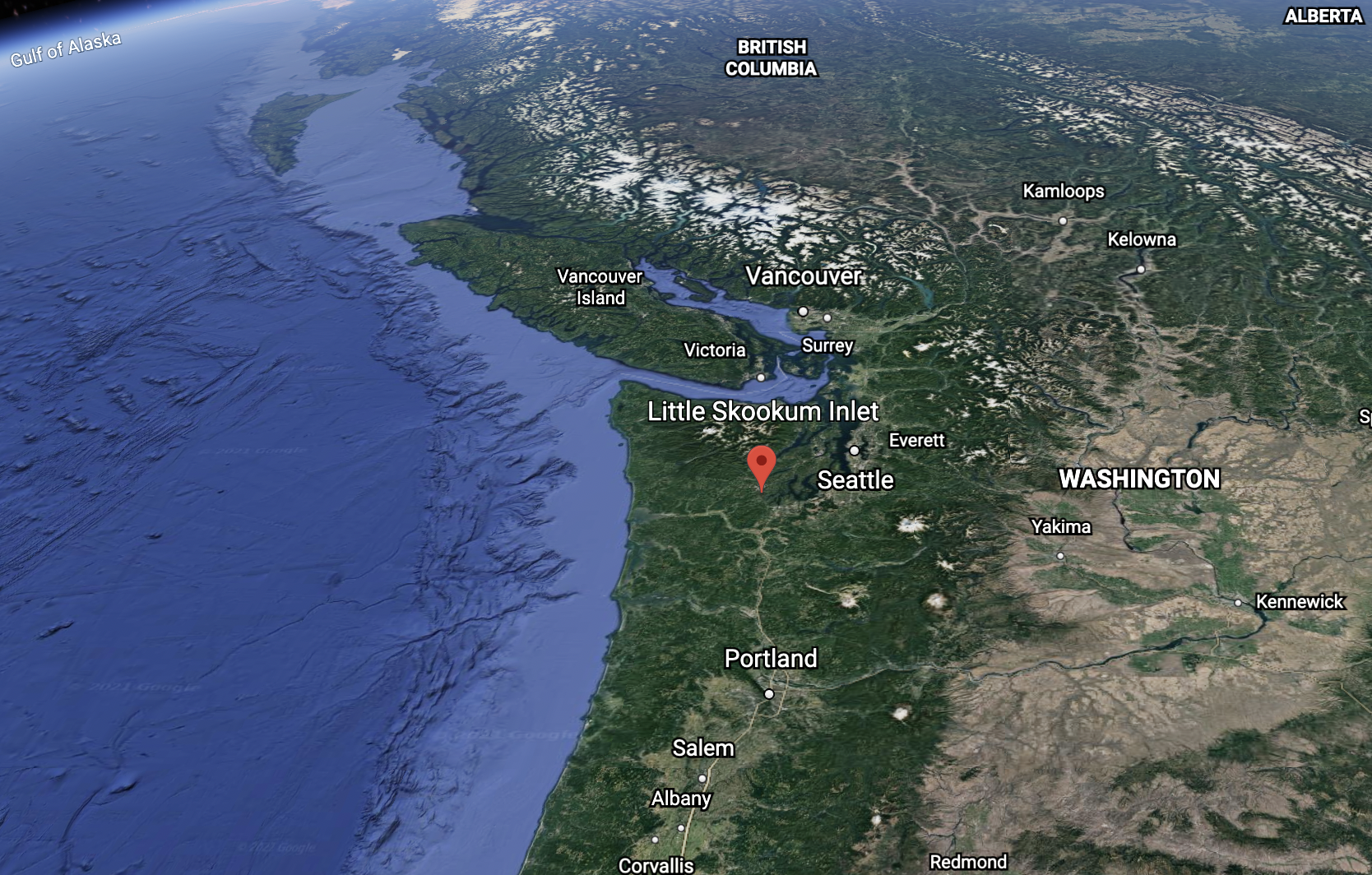
- Details
- By Native News Online Staff
The Squaxin Island Tribe of western Washington state, along the southernmost inlets of the Salish Sea, have received lands back from private owners, a forestry company called Port Blakely Companies.
The company returned 2 miles of waterfront and 125 acres of the tribe’s ancestral tidelands on Little Skookum Inlet at no cost. Separately, Port Blakely Companies also sold 875 acres of upland forest back to its original stewards for an undisclosed amount.
Want more Native News? Get the free daily newsletter today.
At the time of publication, Chairman Kris Peters had not responded to Native News Online’s request for comment, but told The Seattle Times that the tribe has no plans to develop the waterfront property.
Squaxin tribal members are descendants of the maritime people who lived along the shores and watersheds of the seven southernmost inlets of Puget Sound for many thousands of years, their website reads. “Our culture is still very much connected to this aquatic environment.”
The forested property the tribe re-acquired this week was part of the land they stewarde before the Medicine Creek Treaty of 1854, when they ceded 4,000 square miles, or 2,560,000 acres, to the United States government.
Help us tell Native stories that get overlooked by other media.
“It is hard to put into words what it feels like to have back land that the tribe never regarded as theirs, or anyone’s, but rather a gift to steward on behalf of future generations,” Peters told The Seattle Times. “I can’t wait to drum, and sing, and dance out on those beaches, just like our people did hundreds, and thousands of years ago.”
More Stories Like This
Oglala Sioux Tribe Rejects ICE Conditions for Information on Detained MembersSupreme Court Victory Secures Alaska Native Subsistence Fishing Rights
Three Kings Day Feast Honors Pueblo Self-Governance Rooted in Pre-Colonial Traditions
Navajo Council Committees Tackle Grazing Enforcement, Code Revisions
U.S. Must Fulfill Obligations by Protecting Programs
Help us defend tribal sovereignty.
At Native News Online, our mission is rooted in telling the stories that strengthen sovereignty and uplift Indigenous voices — not just at year’s end, but every single day.
Because of your generosity last year, we were able to keep our reporters on the ground in tribal communities, at national gatherings and in the halls of Congress — covering the issues that matter most to Indian Country: sovereignty, culture, education, health and economic opportunity.
That support sustained us through a tough year in 2025. Now, as we look to the year ahead, we need your help right now to ensure warrior journalism remains strong — reporting that defends tribal sovereignty, amplifies Native truth, and holds power accountable.
 The stakes couldn't be higher. Your support keeps Native voices heard, Native stories told and Native sovereignty defended.
The stakes couldn't be higher. Your support keeps Native voices heard, Native stories told and Native sovereignty defended.
Stand with Warrior Journalism today.
Levi Rickert (Potawatomi), Editor & Publisher

